News

BUA Wins Prestigious Grant from E. E. Ford Foundation
We are excited to announce that Boston University Academy has been awarded a competitive matching grant from The Edward E. Ford Foundation to support diversity, equity, and inclusion initiatives at BUA.
Making progress on creating a more diverse community and a more welcoming and supportive environment for underrepresented minority students is critical to BUA’s success as a school and as a unit of Boston University. This prestigious grant from the E. E. Ford Foundation will enable Boston University Academy to take important and meaningful strides towards realizing our objectives in this area.
As a high school within an urban research university, BUA is uniquely positioned to serve underrepresented and low-income students. Increasing racial and socioeconomic diversity in our student body and promoting cultural competency amongst our faculty and staff will benefit all students, help advance Boston University’s diversity strategic priority, and increase BUA’s quality and impact. We aim to more fully live our core value of Inclusion, which states: “A vibrant community comprises learners of diverse backgrounds and interests. We strive for equitable access to resources and opportunities within that community.”
The E. E. Ford Foundation grant will enable BUA to develop and sustain a more diverse, equitable, inclusive school community by:
- Increasing access to Boston University Academy for underrepresented minority students from the Greater Boston area through expanded financial support for high-need families including providing lunch grants and grants for incidental expenses; funding tutoring and summer courses; and offering increased financial aid award packages;
- Enhancing support of underrepresented minority students through an inclusive school culture by providing anti-bias and cultural competency training to students, faculty, and staff;
- Leveraging strategic partnerships in the Greater Boston area and our relationship with BU to provide underrepresented and low-income students greater access to selective institutions of higher learning, including guaranteed admission to Boston University for students in good standing;
- Building financial sustainability and capacity for these initiatives to continue beyond the grant’s implementation period.
Under the auspices of this grant, BUA has already completed several trainings that helped faculty and staff recognize, unpack, and address their own unconscious biases, and provided skills to address issues of identity in the classroom. In September and November, we hosted Erica Pernell, dean of diversity at the Noble and Greenough School, who led sessions on implicit bias, strategies to reduce bias, and best practices for culturally competent advising and admissions. During our Faculty In-Service Day on January 17, Liza Talusan, an independent consultant, facilitated a workshop on developing strategies for talking about race, gender, sexual orientation, class, and socioeconomic status in the classroom. Drawing on funds from the grant, we have also supported 24 current BUA families with a total of $48,000 in funding for lunch grants; 56 families with $26,000 for incidentals costs including tickets to Prom and other extracurricular activities; and five families with $9,110 to help defray the cost of the spring international trip
The E. E. Ford grant model is a two-to-one match for a total of $300,000. BUA must raise $200,000 from a combination of philanthropic support from individuals, corporations, and foundations. The E. E. Ford Foundation will then provide a grant of $100,000. Fundraising for the matching grant must be completed by July 31, 2019.
Boston University has demonstrated its commitment to BUA’s diversity strategic priority by pledging a lead gift of $100,000 toward our $200,000 fundraising goal. BUA has already raised just over half of the remaining $100,000 – we are grateful to those who have made a gift in direct support of this match.
This year, all increased gifts to the Annual Fund may be counted toward the E. E. Ford Foundation match. To make a gift to the 2018-2019 Annual Fund, or to increase your gift if you’ve already given this year, please click here. If you are interested in contributing directly to the diversity and inclusion fund, please contact Assistant Director of Institutional Advancement Margo Cox.
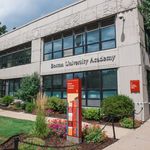
Memo from Provost Jean Morrison
Boston University Provost Jean Morrison issued a memo on January 6, 2019 regarding the status of the BUA Head of School search. Read the complete memo here.
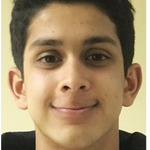
BUA Athletes Earn League Accolades
Boston University Academy sophomore Rohan Prabhu '21 was named this year's Division II Soccer League Most Valuable Player for the Massachusetts Bay Independent League (MBIL). BUA athletes also earned MBIL honors in Cross Country and Soccer. Congratulations to the following athletes for honors well-deserved:
- Cross Country All-Star: Benny Magid '19, Nicholas Holt-Doucette '22
- Division II Soccer League MVP: Rohan Prabhu '21
- Division II Soccer All-League Team: Kourosh Ghaffari '19, Nikola Dobrev '20, Ewan Henderson '20, Will Reason '20, Rohan Prabhu '21
- Division II Soccer Honorable Mention: Duarte Albuquerque '21, Phevos Paschalidis '21
You can find a complete list of 2018-2019 All-Scholastic athletes in the Boston Globe's special section published on Sunday, December 16.

Jessica Conklin ’04
Jessica Conklin ‘04 is a white collar criminal defense attorney who also protects clients in business litigation and students facing disciplinary proceedings and Title IX investigations. She is an associate at Laredo & Smith, a boutique Boston law firm with deep expertise in business litigation, white collar criminal defense, government investigations, business and employment law, as well as estate planning.
As a co-founder of the Boston Associates Networking Group (BANG), Jessica provided an avenue designed to bring together associates from small- and medium-sized law firms, as well as in-house legal departments. Group members support one-another, explore opportunities for both professional and personal development, and discuss pressing issues that often arise in an associate’s practice.
Jessica is a magna cum laude graduate of Hamilton College and a graduate of Boston College Law School. During her time at Hamilton, she majored in Philosophy and minored in Women’s Studies, and won the Earl H. Wright Prize for Excellence in Public Discourse and Advocacy. While at BC Law, Jessica served as a research assistant to two professors, served as president of Law Students for Reproductive Justice, and was a member of the Asian Pacific American Law Students Association.
When not defending clients, Jessica loves to read and travel, and is an avid photographer.
You have been interested in debate, advocacy, and law for a long time. How did your interests develop and were there certain experiences that helped you to narrow your academic focus?
I have always been “loquacious” and argumentative, at least that’s what my pediatrician told my mother. From an early age, my mother was convinced that these qualities would make me a good lawyer. Around the age of five, it was decided for me that I would go to law school. I have a drawing of a judge from kindergarten that says, “I hope to be a supreme court justice someday.” Clearly, my parents had big dreams for me!
When I was in middle school, I drafted a contract that said if I followed certain rules, my parents would get me a cat. I made both of my parents sign this contract. Unfortunately, that was my first introduction to the rule of law that contracts with minors are not enforceable - I did everything that I was supposed to do, presented my parents with the signed contract, but still did not get the cat!
Despite this early encouragement from my parents, I also made sure to confirm my actual interest in the practice of law through various classes, activities, and internships. At BUA, my interest was reinforced through vibrant class discussions and my conversations with Dr. Davis. I loved BUA’s small class sizes and the lively conversation and debate facilitated by the roundtable discussions. When I went to Hamilton, I majored in philosophy and received a grant to intern at the Community Action Agency of Somerville. During the internship I was able to meet with clients and assist with eviction prevention. I also worked for a summer in the Attorney General’s Office fielding calls for the Elder Hotline. The AG’s internship exposed me to a variety of legal areas such as elder abuse, debt collection practices, mental health concerns, and fraud. By the time I began studying for the LSAT and applying to law schools, I was confident that a career in law was right for me.
Does a specific personal approach or philosophy guide your defense and representation practice?
At Hamilton, I took a communications class that taught “active listening,” and that is a concept that I have incorporated into my practice of law. In my practice, it is important to always listen to what clients are saying, not to make judgments or assumptions, and to build trust and rapport. When I go to court, I am often greeted with, “good morning, counselor,” which seems fitting because I really do try to focus on the counseling aspect of being an attorney.
Has there been a moment in your education or career that was particularly surprising, challenging, or defining – or something that sticks with you to this day?
Actually, yes! The transition from Somerville public school to BUA was particularly hard for me. I excelled in Somerville public school, and when I went to BUA I initially struggled. I was even moved down from Calculus to Algebra II. It was very humbling, though in hindsight, that experience was very helpful. I learned that just because something does not come easily, does not mean you should give up or cannot excel in the future.
When I went to Hamilton for college, I felt relieved because BUA had prepared me so well. After graduating from Hamilton, I went straight to law school. BC Law had a different structure than Hamilton, your grade each class was based on just one test taken at the end of the semester. Although the move from college to law school was difficult, I felt prepared and more confident because I had already experienced that kind of transition at BUA.
You participated in BUA alumni panels this past spring (thank you!). What motivates you to connect with current students and alumni?
Many people have helped me get to where I am today, and I feel so fortunate and thankful for that. BUA provided a great environment for personal growth and learning - several teachers really supported and nurtured me. They made time to talk with me after school and provide extra help. I am happy that I have been able to keep in touch with many of my BUA teachers over the years. My BUA art teacher even took my engagement photos!
Finally, BUA taught me to be a leader. At the Academy, your opportunities are only limited by your imagination. My friends and I were able to petition the school to start a satirical newspaper. The school let us run it independently and gave us the freedom to express ourselves. That experience was invaluable. Now, if I see something missing, I am not afraid to create it myself. When I graduated from law school, I noticed that a group for associates from small- and mid-size firms did not exist, so I started one with a friend! The group has now grown to include over 65 attorney members. Without my experience at BUA, I am not sure that starting a networking group from scratch would have even crossed my mind.
Update on Head of School Search
Professor Jack Beermann, chair of the BUA Head of School Search Advisory Committee, issued an update to the BUA community on the finalist phase of the search process for Boston University Academy's next head of school. You can read Professor Beermann's complete update letter here or below.
BUA Soccer Wins MBIL Championship
Last Friday, BUA's Varsity Soccer team brought home the Massachusetts Bay Independent League (MBIL) Championship! Team co-captain Will Reason '20 provides a game recap:
BUA took on Commonwealth last Friday at Winsor School, seeking to win our first championship in the 23-year history of our soccer program. The game started out tense, Commonwealth working hard as they sought revenge for the two regular season defeats we previously inflicted on them. The ball ricocheted around the field as both teams tried to force it over the top to their strikers.
With fifteen minutes gone, I sprinted onto a loose ball, fighting off pressure from two defenders and guiding it clear of the commotion before slamming it past the goalkeeper from six yards out. 1-0! Minutes later, Duarte Albuquerque '21 settled the ball on the left corner of the box, dragged it away from a defender, and buried it with his right foot, rippling the net. 2-0! BUA took total control of the match with a third goal, this one scored by Allie Burdi '20. Finding herself on the left edge of the box, she fired a right-footed shot across the goal. The ball deflected off a defender's head and flew into the top right corner. 3-0! We went into halftime with a commanding lead intact.
BUA dominated the second half as our passing movements came together admirably and we forced Commonwealth back, playing the ball around their box and creating various chances. After about 20 minutes, Rohan Prabhu '21 got the ball on a breakaway, ran towards the goal, and finished the chance with aplomb, placing a shot in the bottom left corner. 4-0! The excitement was palpable. After 23 years of waiting, a championship was almost here. But Commonwealth fought until the end, forcing BUA goalie Abhi Lingareddy '22 into a great ground save, preserving the clean sheet already protected by starting goalie Kealan Biebesheimer '21.
At the final whistle, our ecstatic bench charged the field. A wonderful, collective effort by 23 different players had finally ended a 22-year title drought and a five-game losing streak in finals. Kourosh Ghaffari '19 and I soon became the first captains in BUA history to lift the MBIL Division Two Trophy. The victory was a fitting cap to a stellar season led by coaches Bill Whittaker, Gaeton-Nicolas Bernimolin, and Stephanie Wilczynski, and represented not only a historic first, but also a statement of intent to the MBIL Division One, where we will play next season.
Congratulations to the entire team!
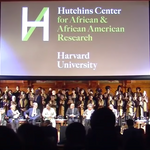
BUA Attends Hutchins Center Honors
On Thursday, October 11, six students and teachers represented BUA at the Hutchins Center Honors in the historic Sanders Theater at Harvard University. The centerpiece of the ceremony was the awarding of the W.E.B. Du Bois Medal; this year’s recipients were Dave Chappelle, Kenneth Chenault, Shirley Ann Jackson, Pamela Joyner, Colin Kaepernick, Florence Ladd, Bryan Stevenson and Kehinde Wiley for contributions to African and African American life and culture.
Rukky Madu, a junior at BUA, reflected on her experience:
"Last week I went with a small group of teachers to the sixth annual W.E.B. Dubois Medal Ceremony. It was a great experience that left all of us very inspired. From hearing about Shirley Ann Jackson pioneering the way for other young black female physicists to laughing at Dave Chappelle's many jokes, I was filled with a sense of black pride that I don't feel every day. The most inspiring speech I heard that day was from Bryan Stevenson. When he walked on stage, applause filled the room and he was greeted with a standing ovation that lasted about two minutes. When it was his turn to speak, I then understood why everyone in the room respected him. He began describing the work he and his team had already done exonerating innocent death row prisoners. In between every sentence, there was another round of applause, which made it difficult to hear all the amazing work he had done. But from what I could gather, he was a great social activist who founded the Equal Justice Initiative in order to help people who were unjustly tried but didn't have money for a good lawyer. During moments like that, I felt really inspired and was so glad to be invited to such an event."
Watch video from the ceremony here.

Sam Roberts ’08
 Sam Roberts ‘08 graduated from Case Western Reserve University in 2013 with a BSE in Mechanical Engineering and a BA in Physics and the History and Philosophy of Science. After graduation, Sam was named a 2013 Venture for America Fellow, worked as an R&D Developer at Paragon Robotics LLC, and co-founded a company called Bookwork, which connects students to part-time work. In 2015, Sam co-founded NaturAll Club, a monthly subscription service for handmade avocado hair products geared towards women of color. He currently serves as NaturAll Club’s Chief Operating Officer. Last year Sam and his co-founder, Muhga Eltigani, were featured on Forbes magazine’s “30 Under 30” list for Retail & Ecommerce. In his free time, Sam enjoys roadtripping, reading, and spending time with his dog.
Sam Roberts ‘08 graduated from Case Western Reserve University in 2013 with a BSE in Mechanical Engineering and a BA in Physics and the History and Philosophy of Science. After graduation, Sam was named a 2013 Venture for America Fellow, worked as an R&D Developer at Paragon Robotics LLC, and co-founded a company called Bookwork, which connects students to part-time work. In 2015, Sam co-founded NaturAll Club, a monthly subscription service for handmade avocado hair products geared towards women of color. He currently serves as NaturAll Club’s Chief Operating Officer. Last year Sam and his co-founder, Muhga Eltigani, were featured on Forbes magazine’s “30 Under 30” list for Retail & Ecommerce. In his free time, Sam enjoys roadtripping, reading, and spending time with his dog.
How does a mechanical engineer end up in the natural hair product business?
I got involved in startups right out of college through a fellowship program called Venture For America. That’s how I met my cofounder. She had been vlogging about her natural hair journey, and had just launched a successful crowdfunding campaign for NaturAll Club’s first product. She needed some help with the operations side of the company when she went full time and I was doing freelance web development work after we shut down my first company, and was excited to work on a physical product. After about six months of helping part time, I joined full time as the COO.
The world of entrepreneurship and startups is fast-paced and changes quickly. How do you see NaturAll Club growing over the next few years? What excites you most about this journey?
I see a lot of growth in the next few years! Not just with our current offerings, but we have a three year roadmap of new products we’re going to be launching. As the operations guy, I’m most excited about figuring out how to scale up our current operations to meet the growing demand we’re already seeing and also managing the growth of the company from a management perspective. There’s already a big difference going from a company of just two co-founders to a company of six.
Has there been a moment in your education or career that was particularly surprising, challenging, or defining – or something that sticks with you to this day?
For me a big moment was when I decided to leave my job to work on my first startup full time. I was nervous for a week before, because I didn’t know how to break the news to my boss. I was nervous both because it was a big step for me, and because I had never left a job before. I felt especially bad since I was the second employee at the company, so I thought my boss was really going to miss me. I read all kinds of articles about quitting and breaking bad news, and eventually just led straight with the bad news, and it went a lot better than I expected.
If you could turn back the clock and give your high school self one piece of advice, what would it be?
My advice would be to try and get as many experiences as possible. In high school I participated in many extracurriculars like soccer, robotics, Model UN and Ultimate Frisbee. In college, on the other hand, I tended to not get as involved in as many clubs and groups because I was so busy with my several majors. I think a lot of those experiences would have been beneficial for my startup experience, where I encounter a wide variety of situations that my majors didn’t really prepare me for.
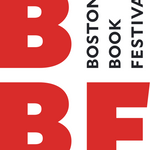
BUA at the Boston Book Festival!
For the third consecutive year, BUA is proud to be an exhibitor at the Boston Book Festival in partnership with WBUR. The Boston Book Festival presents year-round events culminating in an annual festival that promotes a culture of literature and ideas, and enhances the vibrancy of our city.
This year’s event will take place on Saturday, October 13 in Copley Square from 10:00 a.m.-4:00 p.m. We are excited to announce that BUA will be a stop on the Passport to Imagination Tour, a scavenger hunt where festival-goers can make their way through exhibitors' booths, taking part in fun activities and picking up stamps along the way. Visitors to our booth can learn more about our school's academic program, enter to win a basket of books from the BUA curriculum, or pick up some BUA swag.
Rhett Jr., BUA's very own unofficial mascot, will make a live guest appearance from 12:00-2:00 p.m. - be sure to stop by!
For more information about exhibitors at the 2018 Boston Book Festival, visit https://bostonbookfest.org/.
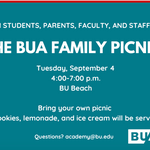
BUA Family Picnic
We hope you'll join us for the BUA Family Picnic on Tuesday, September 4 from 4:00-7:00 p.m. on BU Beach. Bring your own picnic; cookies, ice cream, and lemonade will be served! Special BUA picnic blankets and other apparel and gear will be available for purchase from 3:00-5:00 p.m. See you there!
